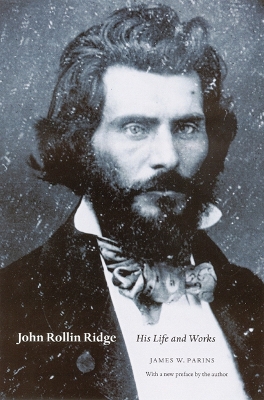American Indian Lives
2 total works
Parins is a professor of English and the associate director of the Sequoyah Research Center at the University of Arkansas at Little Rock. He is the author of "John Rollin Ridge: His Life and Works" (available in a Bison Books edition), co-author of bibliographies of Indian writers and guides to Native publications, and editor of works by Indian writers, including "Ke-ma-ha: The Omaha Stories of Francis La Flesche", also available in a Bison Books edition.
Ridge was born to a prominent Cherokee Indian family in 1827, a tumultuous and violent time when the state of Georgia was trying to impose its sovereignty on the Cherokee Nation and whites were pressing against its borders. James W. Parins places Ridge in the circle of his family and recreates the circumstances surrounding the assassination of his father (before his eyes) and his grandfather and uncle by rival Cherokees, led by John Ross. Eventful chapters portray the boy’s flight with his mother and her family to Arkansas, his classical education there, his killing of a Ross loyalist and subsequent exile in California during the gold rush, his talent as a romantic poet and author, and his career as a journalist. To the end of his life, Ridge advocated the Cherokees’ assimilation into white society.

